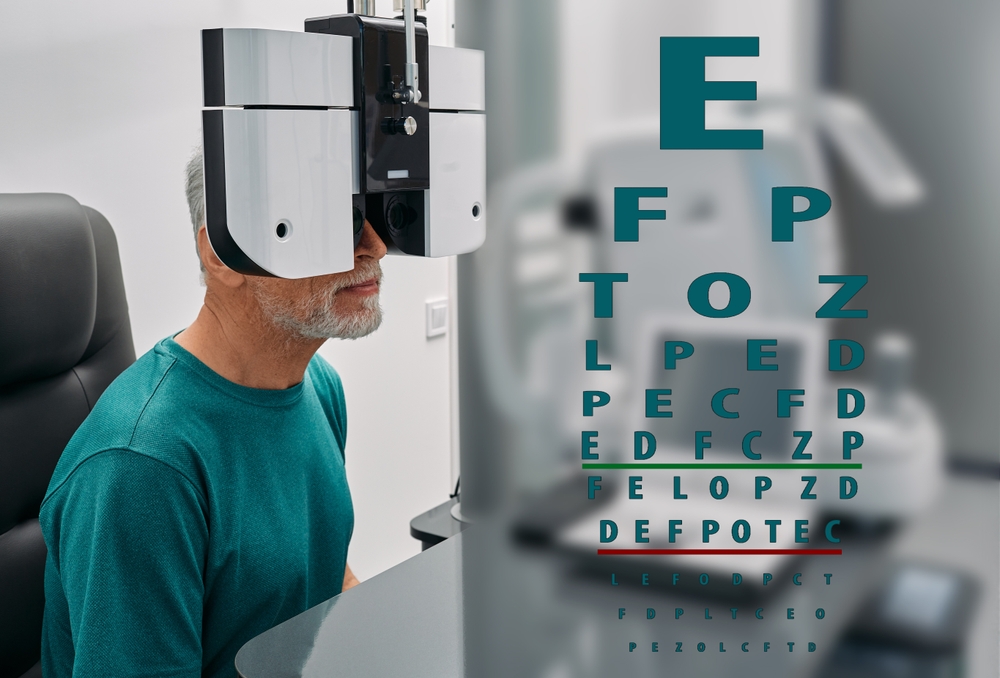
Comprehensive eye exams are essential for maintaining clear vision and overall eye health. At Wellesley Hills Eye Care, our thorough exams go beyond just checking your eyesight. We utilize various specialized tests designed to detect vision issues early, evaluate eye health, and prevent future problems. Understanding these tests can help you appreciate the value of regular eye care.
Visual Acuity Test
One of the most familiar tests, the visual acuity test, assesses how clearly you can see. You’ll read letters from a standardized eye chart at various distances, typically from 20 feet away. Results determine if you have normal vision (20/20) or need corrective lenses.
Refraction Test
A refraction test identifies your precise eyeglass or contact lens prescription. Using a phoropter, your optometrist fine-tunes lens powers to correct issues like nearsightedness, farsightedness, or astigmatism, ensuring optimal visual clarity.
Slit-Lamp Examination
The slit-lamp examination provides a magnified, detailed view of your eyes' structures. This test helps detect conditions affecting the cornea, iris, lens, and anterior chamber, such as cataracts, dry eye, and infections.
Tonometry
Tonometry measures intraocular pressure (IOP) inside your eyes. Elevated IOP can indicate glaucoma, a condition that can cause permanent vision loss if left untreated. Regular tonometry screenings can detect glaucoma early, allowing prompt treatment.
Retinal Examination
A retinal exam involves dilating your pupils to thoroughly examine the retina, optic nerve, and blood vessels at the back of your eye. This comprehensive view helps detect serious eye conditions like macular degeneration, diabetic retinopathy, and glaucoma.
Visual Field Test
The visual field test checks your peripheral (side) vision, identifying blind spots or peripheral vision loss that may indicate glaucoma or neurological issues. Early detection can be critical in managing these conditions effectively.
Eye Movement and Alignment Test
Evaluating eye movements and alignment ensures that your eyes coordinate properly. Problems in eye alignment, such as strabismus, can cause double vision, headaches, or eyestrain.
Pachymetry Test
Pachymetry measures the thickness of your cornea, which is essential in assessing glaucoma risk. A thicker cornea may provide artificially high intraocular pressure readings, while a thinner cornea may result in underestimated readings. This test helps ensure accurate tonometry results and provides valuable information for conditions like keratoconus, a progressive eye disease that affects corneal shape.
Meibography and Tear Film Evaluation
For patients experiencing dry eye symptoms, specialized tests such as meibography and tear film evaluation assess the health of the meibomian glands and tear production. These tests help determine if dry eye syndrome is caused by inadequate tear production or meibomian gland dysfunction (MGD), allowing for targeted treatment options like artificial tears, prescription medications, or in-office therapies.
Schedule Your Eye Exam with Wellesley Hills Eye Care Today
A comprehensive eye exam at Wellesley Hills Eye Care is more than just a vision check; it’s a critical step in safeguarding your eye health. Understanding these various tests highlights the importance of regular exams and proactive eye care.
Schedule your comprehensive eye exam with Wellesley Hills Eye Care, and take an essential step towards maintaining clear vision and healthy eyes. Visit our office in Wellesley, Massachusetts, or call (781) 501-9120 to book an appointment today.








